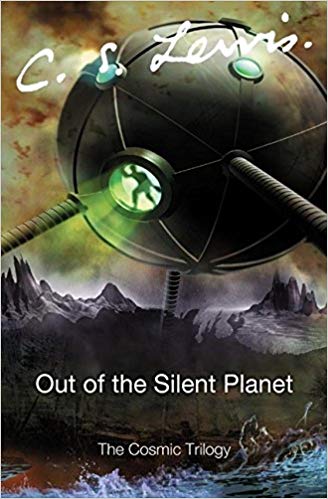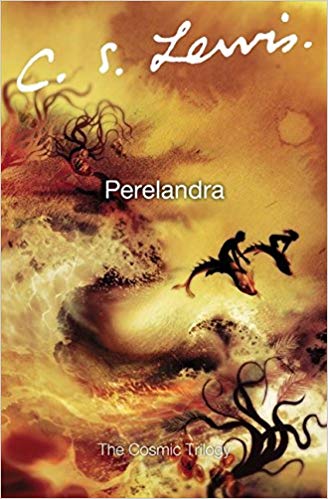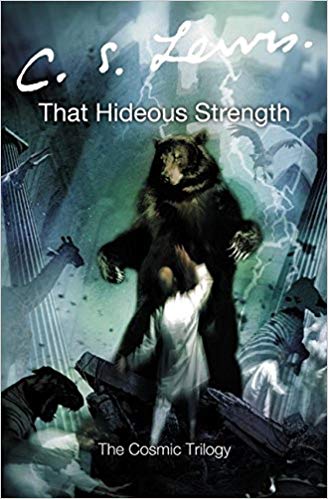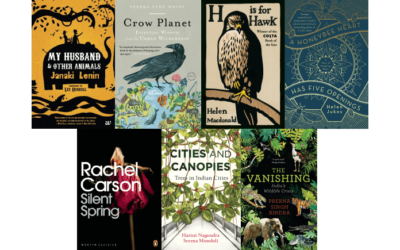Essay
Out Of The Silent Planet: How Reading C. S. Lewis Made Me A Writer

Aziel Karthak
January 22, 2019
“That’s nice of them. What is it?” asked Mom, as Dad gently placed, on the table, his retirement gift that had clearly been unwrapped, viewed and wrapped again.
“Ah, a book by that fellow who wrote the Narnia stuff,” said Dad, not indignantly, but with enough disinterest in his voice to suggest that he was not going to go near the gift anytime soon. He did not care for fiction but loved his history. Recently, he had been reading The Gathering Storm, the first of Winston Churchill’s six-volume account of World War II. I liked neither fiction nor history. I was happy as long as I bought The Sportstar, a weekly magazine on Indian and international sports, with my pocket money. However, the transition from glossy paper to paperback was soon to come for me.
It was the first or second Saturday of June 1994. I remember it as a typically erratic Kalimpong summer day. The cobalt above turned grey in a matter of minutes and it started raining, first gently and then picked up to a crescendo that sent a playing 13-year-olds like me scurrying into the comfort of home.
As I sat in my Dad’s study, warm tea in hand, I saw The Gathering Storm on the table. I thought of giving it a try but two things deterred me. The first was Dad’s strict rule of not picking up a book that someone has already started reading and the second was its sheer girth.
Next to this behemoth lay Dad’s retirement gift, in pristine untouched glory. It seemed like a much smaller and more manageable proposition. On the cover was a man in front of a round space pod in the middle of weird vegetation. The book was by C.S. Lewis. Typically, I would have given it a miss but the rhythm of the downpour on the corrugated sheets, which had the power to put me to sleep as a baby, compelled me to reach my hand out and grab the book. And so I did. In fact, I did more than just grab the book; I opened it to the first page. The first line of the book I do not remember. The second changed my life:
A violent yellow sunset was pouring through a rift in the clouds to westward, but straight ahead over the hills the sky was the colour of dark slate.
Goodness me, I thought to myself. That is some seriously good writing. Maybe this reading stuff ain’t so bad after all. It’s not that I had not read better or something equally good. Every now and then, I would try my elder brother’s fiction collection. Alas, I could never get past the first chapter. The words did not touch me the way this line did. I guess it wasn’t just the words with this one. Perhaps, it was the moment. Or, to borrow from a famous author I would read ten years later, the universe conspiring to turn me into a reader.
I read deep into the afternoon, long after the rains had subsided and the sky had turned red. That evening I took out Dad’s Smith–Corona typewriter, a gift from our American neighbour before she left for Seattle. I decided to type out the meaning of the difficult words that I had encountered in the first three chapters of the book and use them in sentences in order to build up vocabulary. With an old Webster’s Dictionary beside me, I began the process. The first word, I still remember, was malediction. I typed slowly…
The witch uttered maledictions as the villagers surrounded her.
The second word was sanguine. Then doggedly. Intelligentsia. Soon, I was violently overworking the typewriter after study hours, but my parents were patient and understanding. Once I finished with Out Of The Silent Planet – and, I mean, both the book and the vocabulary-building words – I successfully coaxed my mother into buying the same author’s Perelandra and That Hideous Strength. My first trilogy was complete and I was now addicted to reading.
Developing a new passion meant that I had to let go of old ones. I no longer dreamt of pursuing a career as a footballer or a pilot and though I was sad to crush Mom’s dream of her younger son becoming a surgeon, I am happy humanity dodged that bullet. The vocabulary-building exercises must have helped too if the improvement in my English grades were any indication. This encouraged me a lot and two years after my chance encounter with Dad’s retirement gift, I embraced my calling – I was going to earn my living working with words.
In June this year, I visited my mother in Kalimpong with my wife (who blessedly is also an avid reader). One of the first things I did after reaching home was go to my Dad’s study, a place that was a voluntary no-go zone for the 14 years since he had passed away.
The Churchill biography lay on the table beside the typewriter that was still in surprisingly good condition. Another familiar object stared at me from a bookshelf mounted on the wall, directly above the study table. It was the odd one out and the smallest in a line of biographies. I could see just the spine but I instantly recognised the book. 24 years earlier, it had helped me choose my career path and shaped the person I was to become. I gently took the book off the shelf and turned to the first page. I read the second line, which had once had such a profound impact on me. I read it twice. Maybe thrice, before I found myself reading, in rapt silence, the third line:
Every tree and blade of grass was dripping, and the road shone like a river.
Goodness me, I thought to myself. That is some seriously good writing. Maybe this reading stuff ain’t so bad after all.

Aziel writes because he has thoughts inside him he has to let out. If he doesn’t, there's a chance he will turn into a giant pen. He is also a huge sports fan. When he’s not writing or reading or fixating on some athletic competition, you’ll find him watching YouTube videos on how to make the perfect steak. His other interests include 80s rock music and the Siberian tiger. Aziel cites C.S. Lewis and his first dog, Pupsy, as his writing inspirations. Follow him on Twitter, here.
You can read his pieces, here.








